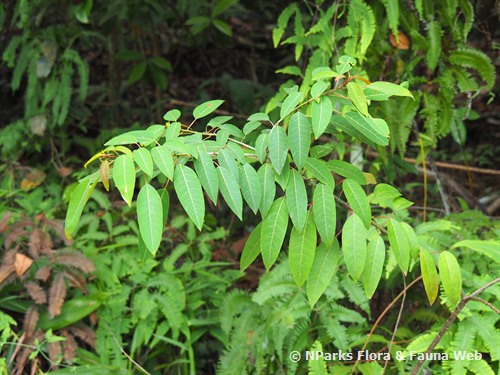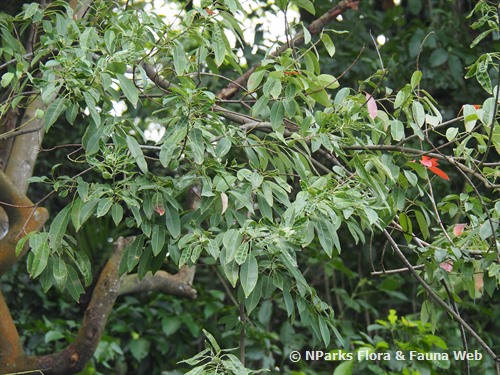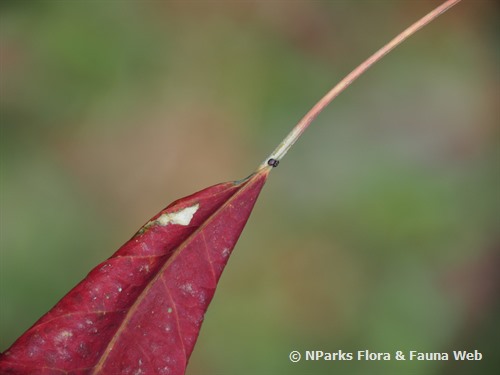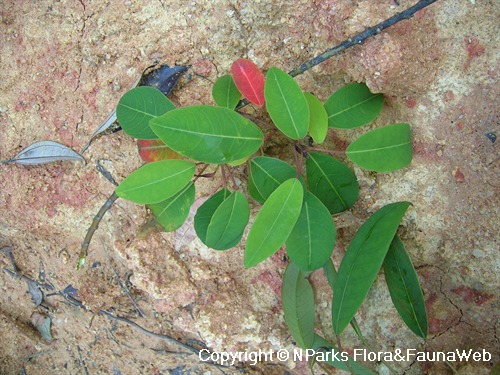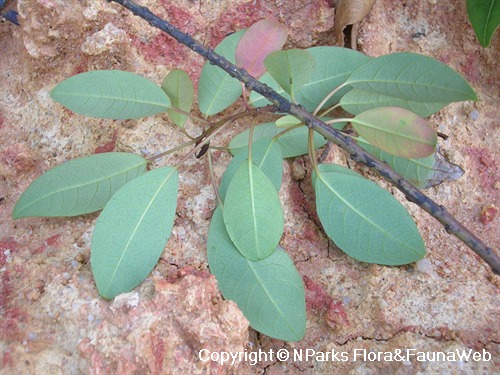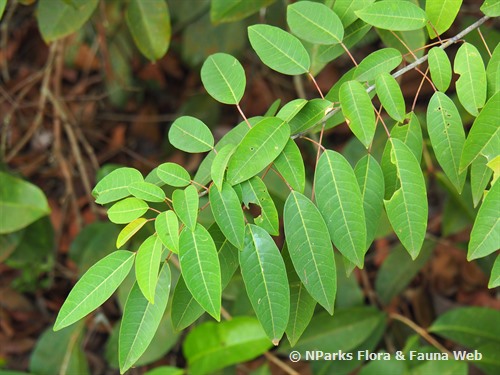
Back
Triadica cochinchinensis Lour.
| Family Name: | Euphorbiaceae |
| Synonyms: | Sapium discolor |
| Common Name: | Mouse Deer's Delight, 山乌桕 |
Name
Classifications and Characteristics
| Plant Division | Angiosperms (Flowering Seed Plants) |
|---|---|
| Plant Growth Form | Tree |
| Mode of Nutrition | Autotrophic |
| Maximum Height | 25 m |
Biogeography
| Native Distribution | Cambodia, India, Indonesia, Laos, Malaysia, Singapore, Myanmar, Philippines, Thailand, Vietnam |
|---|---|
| Native Habitat | Terrestrial |
| Preferred Climate Zone | Tropical |
| Local Conservation Status | Native to Singapore (Least Concern (LC)) |
Description and Ethnobotany
| Growth Form | Triadica cochinchinensis can grow to 25 m tall. |
|---|---|
| Foliage | Leaves are pinkish when young, green when mature and withering red. Leaves are elliptic to oblong-ovate (4 – 10 cm long and 2.5 – 5 cm wide) and alternately arranged. Petiole is 3 – 6 cm long with a pair of round glands and stipules is present (0.3-2 mm by 0.6-0.7mm). |
| Flowers | Inflorescences (about 4 - 12 cm long) occurs at the terminal ends. Female flowers occurs at lower part and male flowers occurs in upper part region or throughout the inflorescence. |
| Fruit | Fruit is 7 – 9mm long and the base is clavate. Seed is about 3.5-5 mm long and 3.5-4.5 mm wide with pale grey sarcotesta. |
| Ethnobotanical Uses | Others: The wood is used to make matchsticks and tea boxes. The roots and leaves are also used for traumatic injury and to detoxify snakebites. The seed oil is used to make soap. |
Landscaping Features
| Desirable Plant Features | Ornamental Foliage |
|---|
Plant Care and Propagation
| Light Preference | Full Sun |
|---|---|
| Water Preference | Moderate Water |
| Plant Growth Rate | Moderate |
Foliar
| Mature Foliage Colour(s) | Green, Red |
|---|---|
| Leaf Area Index (LAI) for Green Plot Ratio | 3.0 (Tree - Intermediate Canopy) |
Image Repository
Others
| Master ID | 1900 |
|---|---|
| Species ID | 3193 |
| Flora Disclaimer | The information in this website has been compiled from reliable sources, such as reference works on medicinal plants. It is not a substitute for medical advice or treatment and NParks does not purport to provide any medical advice. Readers should always consult his/her physician before using or consuming a plant for medicinal purposes. |

